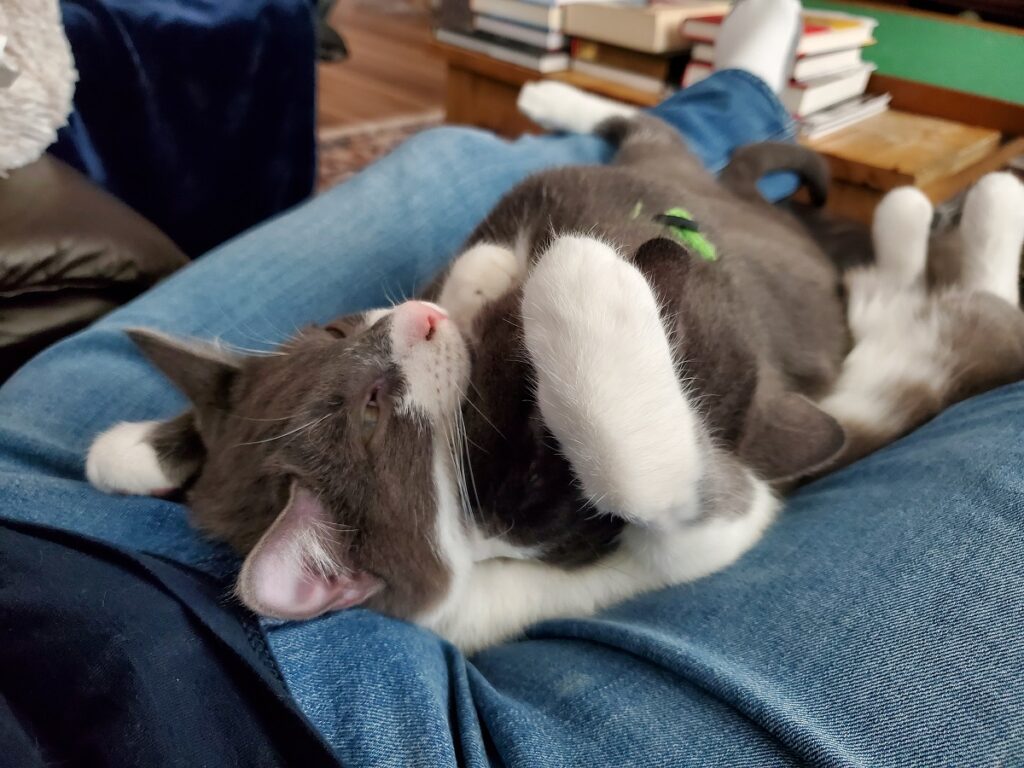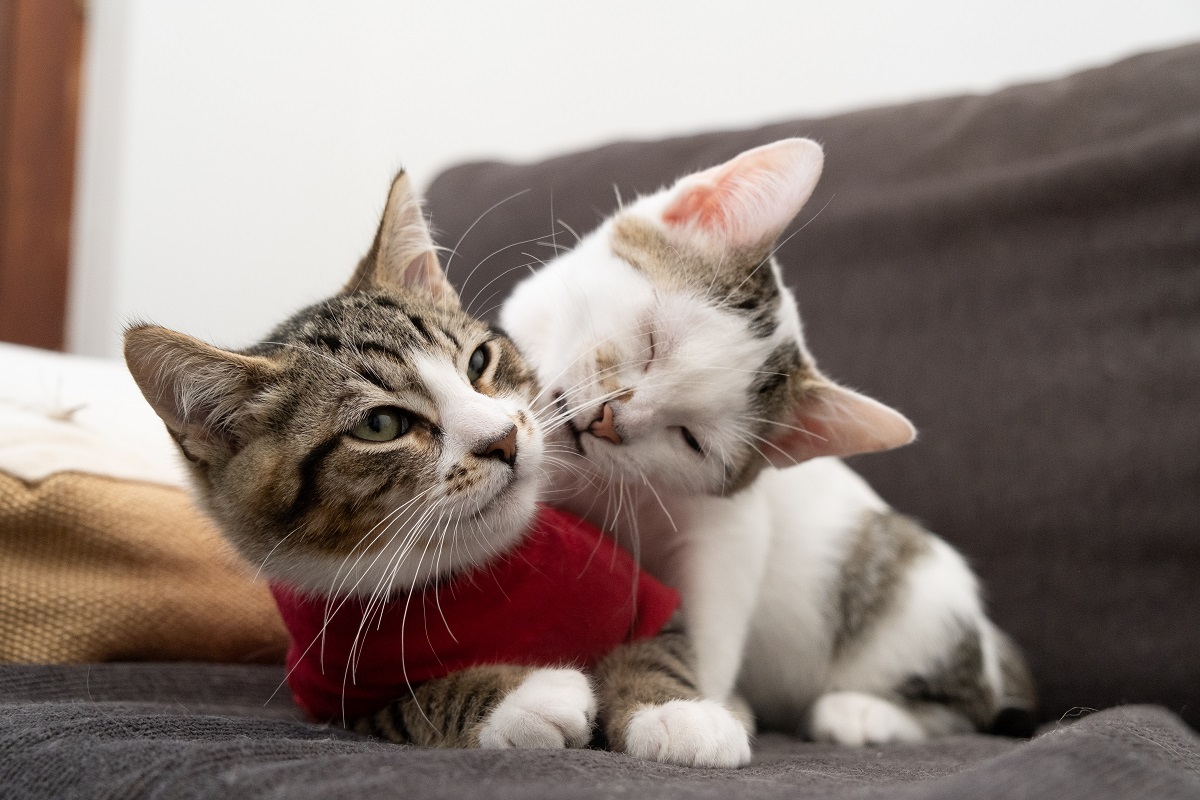If you have ever watched two kittens wrestle, you know it can get dramatic. One minute they are napping in a sunbeam, the next they are locked in a high-speed tumble that ends with one kitten clamped onto the other’s neck like a tiny lion. Before you panic, take a breath. Neck biting between kittens is completely normal behavior, and in most cases, it is nothing to worry about.
From play fighting and social bonding to instinctual behavior left over from their wild ancestors, this quirky little habit actually plays a big role in how kittens grow up. Understanding why they do it can help you know when to let it go and when to step in.
Play Fighting Is a Big Part of Growing Up
The most common reason kittens bite each other’s necks is simple. They are playing. Rough-and-tumble games help kittens learn coordination, build strength, and figure out how hard is too hard when it comes to biting.
Neck biting during play teaches:
- Bite inhibition
- Dominance and submission roles
- Hunting and pouncing techniques
- Boundaries through body language and vocalizations
As long as both kittens seem engaged, take turns being the aggressor, and bounce back quickly after each scuffle, the neck biting is just part of the game. You will often see a quick bite followed by a break, a pounce, or a chase. This is kitten school in action.
Neck Biting Can Be a Display of Dominance
In a group of kittens, someone always tries to be the boss. Neck biting can sometimes be a way for one kitten to assert dominance over another. It is more common in siblings or littermates and usually sorts itself out without any real conflict.
If you notice one kitten always initiating the biting, pinning the other down, or holding on for a little too long, you might be witnessing a power play. As long as the other kitten is not showing signs of stress or fear, and they both go back to playing afterward, there is usually no need to intervene.
Signs of healthy dominance play:
- Equal participation in play
- No hissing, growling, or yowling
- No hiding or avoidance from the more submissive kitten
- Normal eating and sleeping behavior for both kittens
If one kitten becomes withdrawn, aggressive, or seems overly stressed, it may be time to give them a break or separate them temporarily to prevent anxiety or bullying.
It Can Also Be a Grooming Behavior
Not all neck bites are part of play fighting. Sometimes, kittens bite each other’s necks during social grooming. This is a sweet and gentle way for cats to bond and care for one another. It often starts with licking, followed by little nibbles that look like tiny love bites.
Related read: Why Your Kitten Won’t Use the Litter Box (And How to Fix It Without Losing Your Mind).
Grooming nibbles usually look very different from playful bites:
- They are slower and more rhythmic
- The kittens are calm and relaxed
- There is no chasing or wrestling involved
- The biting is often mixed with licking
These little neck nibbles are nothing to worry about. In fact, they are a good sign that your kittens feel safe and bonded with each other.
When to Step In and Interrupt the Behavior
While neck biting is normal in most kitten interactions, there are times when it crosses a line. If one kitten is clearly upset or hurt, the play has stopped being mutual and has become a problem.
Watch out for these signs:
- Repeated crying, growling, or hissing
- Hair standing up or puffed tails
- One kitten hiding or avoiding the other
- Aggression spilling over into mealtime or litter box issues
- Any signs of injury or bleeding
In these situations, step in calmly. Clap your hands or make a soft sound to interrupt the behavior. Redirect their energy with a toy, separate them briefly, and let things cool down. Do not punish or yell. The goal is to reduce tension, not create more.
What About Neck Biting Between Older Cats?
Neck biting is not just for kittens. Adult cats may also bite at the neck during play, grooming, or mating behavior. In multi-cat households, it can be part of ongoing social interaction. The key is to observe the body language.
If the biting is gentle and followed by grooming or relaxed behavior, it is probably fine. But if one cat is clearly uncomfortable, hissing, or trying to escape, it may be time to separate them and assess what is going on.

Dear Joey, Have you noticed the little game I like to play – the one where I sneak up and gently bite your neck? I know it may seem strange, but it’s all a part of our kitty code. As your wise elder, I’m showing you the ropes, teaching you the fine art of the ‘surprise pounce.’ Now, don’t worry. You may be really bad at it now, and trust me, you really are. You’re surprisingly lame. But you’ll get better. Not as good as me, of course. But better. #KittyCode #SurprisePounce #DontEmbarrassMe
Winston
Should You Be Worried About Aggression Later?
If your kittens are still young, neck biting during play or grooming is rarely a sign of future aggression. It is much more likely to fade as they mature, especially if they are well-socialized and have positive interactions with people and other pets.
You can encourage healthy behavior by:
- Providing lots of interactive play with toys
- Giving them space to rest alone when needed
- Socializing them with gentle human handling
- Offering positive reinforcement when they play nicely
The more safe outlets they have for their energy and curiosity, the less likely it is that play fighting turns into a problem.
Final Thoughts: Neck Biting Is Just Another Weird Cat Thing
Kittens biting each other’s necks is totally normal in most cases, and it is a key part of how they learn to be cats. Whether they are play fighting, practicing their hunting skills, or just figuring out who is in charge, a little neck nibble here and there is all part of the fun.
As long as both kittens seem happy and engaged, there is no reason to worry. Keep an eye on the intensity, watch for signs of stress, and give them toys, playtime, and attention to help burn off that wild kitten energy.
In the end, neck biting is just one more way kittens figure out the world. And let’s be honest, it is kind of adorable watching two fluffy little gremlins sort out their differences with a pounce and a purr.
Sources:
Kitten Play Behavior Explained https://www.humanesociety.org/resources/understanding-your-cats-behavior
Why Cats Bite During Play https://www.petmd.com/cat/behavior/why-does-my-cat-bite-me-playing
Feline Social Behavior https://www.icatcare.org/advice/understanding-cats-social-behaviour
Managing Kitten Aggression https://vcahospitals.com/know-your-pet/aggression-in-kittens
Recent Posts
Explore why cats sleep so much, including the evolutionary reasons and the health benefits they derive from their extensive sleep patterns.
Explore the causes of cat dandruff, its implications, and effective ways to deal with it so your feline friend remains happy and healthy.


